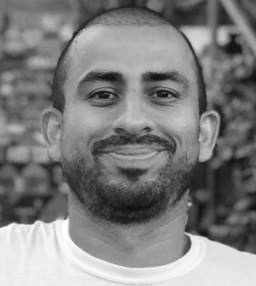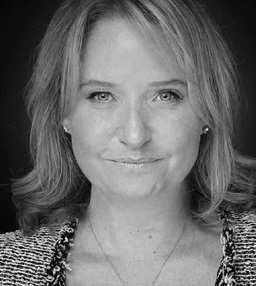In the wake of an economic recession, being open minded can feel like a luxury. Our natural response is to tighten the belt and wait for the worst to pass. It’s in these times that our ability to remain receptive to new ideas, perspectives and solutions is not only important, but crucial.
The world is never riper for innovation than in times of uncertainty. As an added bonus, those who choose to see the world as an abundance of opportunity see benefits beyond the economical.
In a 2017 study, researchers found that people who are open-minded report increased and prolonged levels of happiness. They also found that those people are more “flexible, curious, creative, and open to exploring the world.” The best part? Openness is not an inherent trait, but a learned one. Just as you learned to ride a bike or balance a budget, you can learn to let go of preconceived notions and approach the world with a childlike openness. Start with these tips.
1. Introduce variety.
Sure, switching up your Friday date night dinner spot could count, but think bigger. If you’re a beach-dweller every year on vacation, take a trip to the mountains and—with a guide—challenge your physical and mental capacity. If you haven’t met new people outside of the office in the past six months, sign up for a local cooking class or volunteer to teach art at a nursing home. This openness to new experiences increases your integrative complexity, which is how the brain makes new connections and patterns between seemingly unrelated pieces of information.
2. Quiet your mind regularly.
The act of meditating can be an open-minded one for many. If it’s your first time attempting meditation, you probably feel pretty uncomfortable, maybe even silly. Lean into that feeling and accept that anything new comes with a tint of fear and uncertainty. Research has found that mindful meditation—focusing on the breath—changes the activity in our brains. Breathwork calms our bodies and quiets our mind, and allows us to take in other perspectives without judgment, fear, or preconceived notions—the enemies of open -mindedness.
3. Promote thoughtful disagreement.
No, keyboard warriors, this isn’t permission to troll your newsfeeds for political soapboxes to knock over. In The 7 Habits of Highly Effective People, Stephen Covey writes that “you seek first to understand and then to be understood.” Imagine if you walked into every new conversation with the priority of understanding the perspective of the person speaking before inserting your opinion. It’s harder than it sounds.
4. Remove your blinders.
Routine is good and can have a plethora of benefits for efficiency, productivity and decision fatigue. But routine for the sake of routine can feel like we’re wearing blinders. We go into auto-pilot while the world fades into the background. What important details are we missing in that background? If you work in a solo environment, spend one day per week working from a coffee shop. Schedule a weekly brainstorm session that promotes out-of-the-box thinking. Meet with peers, mentors or industry colleagues on a regular basis to learn about different methods, perspectives, and even feedback that could be critical to your growth.
5. Daydream.
A challenge for the go-getter types that we write about in this magazine, daydreaming is anything but idleness or laziness. Research on daydreaming is a burgeoning field, but those who study it have shown that participants reported increases in creative thinking, compassion, self-awareness, and future-planning—in other words, the tenets of great leadership. Schedule time to let your mind wander. Keep that time as sacred as a board meeting or potential client presentation. Keep a journal of the thoughts that arise during these times and let your unconscious mind work through problems and come up with creative solutions.
We spoke to three entrepreneurs who have learned through the good and the bad how powerful an open mind can be. Here’s what they had to say.

Julio Daniel Hernandez
CEO of EnLight.Energy, Washington
In 2015, we partnered with one of the largest renewable energy companies in the world. Things were booming. Then, that company declared bankruptcy, and our team was stuck between an exclusive agreement and the bad reputation indirectly affecting us. In a Tony Robbins business mastery class, I was exposed to the idea of not falling in love with a product but instead falling in love with the value you bring to your customer. Through that experience, we learned to pivot and get creative.
To stay open to new ideas, I put any feedback through a simple filter.
- Did I catch myself disagreeing instinctively and in a reactionary way? Did it make me uncomfortable? Did it question what I believe to be true? If so, my ego might be blinding me.
- Does the person providing feedback have the expertise or proximity to bring valuable insight? The answer to every problem is a few feet away from it.
- Can I take action on the insight in a measured yet unbiased way? Action cures fear.
Necessity is the mother of invention. When things drastically change—as they recently did—you can either settle into mediocrity or you can rally the team to help think of ways to continue to bring value. If you are lucky enough to have a supporting cast, hear them out. Ninety percent of your business solutions are in the brains of your clients and team members. Listen to them. If you are a solopreneur, reach out to people who are good at what they do and give them permission to let you know what you are not seeing.

Jennifer Kushell
Founder and CEO of EYP Ventures, Inc., Marina Del Rey, California
I started my first business at 13. I started my fifth at 19. I ask myself, Why are young people not being told they can be entrepreneurs? Once I was offered to spend a semester at sea. I declined, thinking I was too busy with my projects to take that kind of time away. Turns out, Desmond Tutu made an appearance on that ship. There is so much opportunity in the world, and I’m blown away by the society of closed-mindedness that pervades. I’ve spent the better part of my life teaching young people that entrepreneurship is not only real, but also that it’s accessible and available to them.
Open-mindedness is about letting go of transactional thinking. It’s not just about the bottom line; it’s about experience. I see students with study-abroad offers who choose to stay home with their friends. This choice not only dramatically limits their opportunities in the world, but also the richness of their lives. When we are closed-minded, it spreads throughout our communities; it affects our global competitiveness and global economic power. We’re stunting our own growth.
Open your life to variety. You don’t eat canned soup every day even though it could sustain you. You get vitamins and nutrients and energy and enjoyment from all different types of food. How you feed your mind is parallel to how you nurture your body.

Brittany Merrill Yeng
Co-Founder and Managing Member of Skrewball Spirits, San Diego
When my husband and I started Skrewball, the experts said we were doing it wrong: Our branding had nothing to do with our product; we were priced too high; we did not have the typical industry background. In retrospect, people have pointed to these differences as what has made us successful.
Contrary to the popular saying, there are bad ideas. To make sure you are not quashing creativity while still making sure we’re having productive conversations, I set ground rules. I ask that all the ideas pass a test before we explore them. Our people must ask themselves:
- What is the goal?
- Does my idea further that goal?
- Does my idea make business sense?
Brainstorming without direction becomes frustrating and a waste of time for everyone. The worst part is that the morale is lost when you don’t take anyone’s ideas.
What I have found helpful is asking everyone to constantly check in and ask themselves: What would I do if I owned the company? It is incredible to see people take this to heart and further the entrepreneurial spirit of the company, while keeping them centered on the common goals. When someone comes to me with a great idea, I allow them to “own” that project. I love seeing them grow (and stumble) through the challenges and create a connection of learning how hard it is to make the calls sometimes
This article originally appeared in the November/December 2020 issue of SUCCESS magazine.
Photo by @lelia_milaya/Twenty20.com





